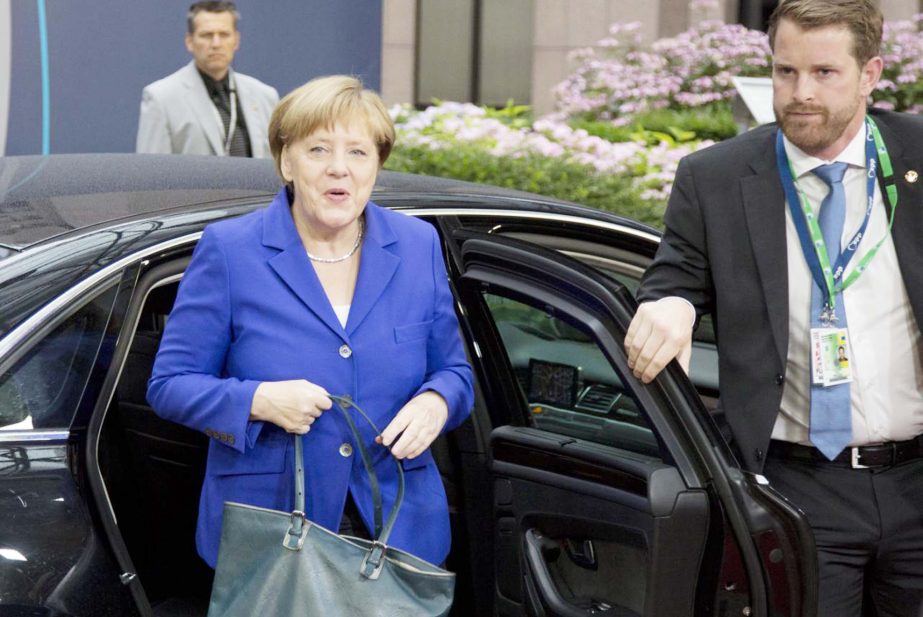
AP, Brussels :EU leaders met Wednesday without Britain for the first time to rethink their shaken union, make it more relevant to citizens and keep it from disintegrating after Britain’s unprecedented vote to leave – but conflicting visions of Europe’s future are complicating the high-stakes summit.British Prime Minister David Cameron left Brussels on Tuesday night without any clear divorce plan, fending off pressure for a quick exit and punting the complex departure negotiations to his successor.In Britain, nominations opened Wednesday for a new Conservative leader to replace him after his devastating political miscalculation in calling last week’s referendum.With Britain’s fate in Europe uncertain, the 27 remaining presidents, chancellors and prime ministers meeting in Brussels are focusing Wednesday on what to do about the rest of the continent. There’s a widespread sense that the post-war project to foster peace via trade has become a bureaucratic, undemocratic behemoth with little meaning for its 500 million citizens.”We all need to wake up and smell the coffee,” Lithuanian President Dalia Grybauskaite said.”We have to show that Europe brings a real added value that can be felt by our fellow citizens,” Belgian’s Prime Minister Charles Michel said.They all seem to agree that something must change after frustrations built up to the point that Britain quit, but disagree about how. The initial EU founding nations in the west lean toward a tighter, closer union while newer nations in the east want to keep more control with national governments – notably of their borders.Other EU countries are now facing calls, especially from the nationalist far right, for referendums on quitting the bloc. Popular French far-right leader Marine Le Pen pressed unpopular President Francois Hollande in a weekend meeting for such a vote in France, but his government has rejected the idea.The 27 remaining EU members are especially divided over how to deal with migration, a major issue in Britain’s vote last week. Central European nations led by Hungary refuse to accept imposed EU refugee quotas, and countries further north have all tightened border controls in response to the arrival of more than 1 million migrants last year.

